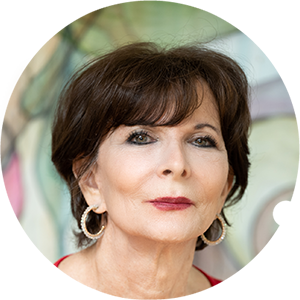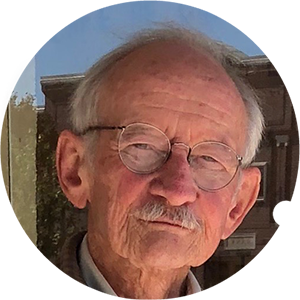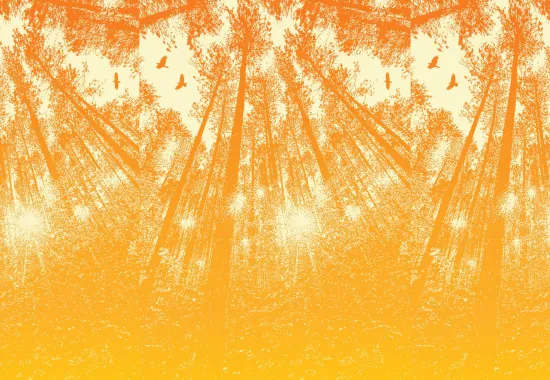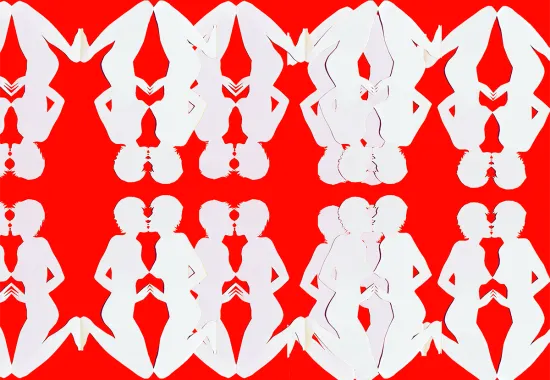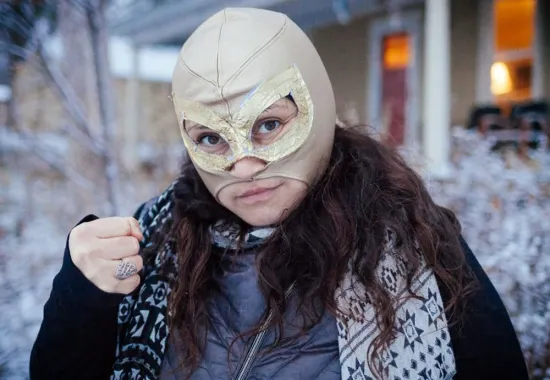A Conversation with Ted Kooser: In Dialogue with Judith Harris
JH: One of the more noteworthy aspects of the Selected is the inclusion of poems from Winter Morning Walks: One Hundred Postcards to Jim Harrison (2001), a book that is as unassuming as it is poignant. Something unspoken is adrift here: the speaker is increasingly aware of life’s vicissitudes, “Just as I awoke this morning, / wrapped in fear.” Watching a plastic flag—the kind that the people who maintain roads use to warn of hazards—propped up again and again, the speaker muses, “give me your courage.” Could you talk a bit about the affirmative qualities of poetry and also your focus on individuals on the borderlines of the social world, and who elicit in your speakers an understanding of collective experience?
TK: I think all works of art are affirmations of life, and we can see affirmation in the poems leading up to the terrible moment when all of that affirmation reverses, and a suicide follows. I find it very difficult to read the poems of people like Sylvia Plath because I know what is coming. In Van Gogh’s work, the affirmation is so vibrant and colorful that it is still burning bright more than a hundred years later. As to the second part of your question, I do write about people set apart from what’s fashionable, because their lives are of interest to me. In my next book I have a poem about watching some moving men take an upright piano down a flight of stairs, a magical feat, far more impressive than anything the Kardashians have ever done, and I dedicated it to a moving man who was a neighbor of mine.
I find that if I let myself play in my writing, a playfulness comes through, and the more playful the poems, the more appropriate for children they seem.
JH: In an essay, “Metaphor and Faith” you write: “Of the possible existence of a supreme order, Robert Frost once said, ‘With so many ladders going up everywhere, there must be something for them to lean against.’ And there are lots and lots of ladders, in every corner of the earth, each leaning up against The One Big Thing.” You then discuss “The Silken Tent” to make a point of your own about the varieties of religious belief. Prominent in all categories of your work is the importance of metaphor, could you say a bit about it?
TK: If I have a gift as a writer, it’s a gift for association, or metaphor-making. While I’m writing, the metaphors come unsummoned out of somewhere inside me. I have never invented one, that is, consciously set out to construct one from scratch. They are revealed to me in that trance-like state of concentration I fall into while there is nothing else in the world but the tip of my pen on the paper. Pop! There’s a metaphor. I’ve had students show me a draft of a poem and say, “Do you think I should put in a metaphor here?” Well, metaphors aren't like that. You can’t take one out of its plastic wrapper and plug it in. They aren’t ready-made, on display at the Metaphor Counter in Walmart. They come up from within us, miraculously.
JH: Could you tell us more about your children’s books. Recently you collaborated with Connie Wanek on a book from Candlewick Press, Marshmallow Clouds; Two Poets at Play Among Figures of Speech, but you have written others as well. What are the similarities and differences between writing for an adult or children’s audience?
TK: I find that if I let myself play in my writing, a playfulness comes through, and the more playful the poems, the more appropriate for children they seem. So when I’ve finished a poem, I let it sit for a few days until it begins to look like someone else’s poem, and I ask, “Just who is the reader for this?” Most of my poems in Marshmallow Clouds weren’t written for children but seemed as if children might like them. I’ve never set out to write a poem for a child.
JH: In writing my book about elegy, I found that your elegies were consolatory in ways that others are not as you find the perfect image that needs no more explanation for feeling than itself. Also, what is striking about your poems that often reflect loss and time passing is the way that your love for the deceased comes through as in this beautiful elegy, “Father” that closes with these lines on the anniversary of your late father’s birth:
On this day each year you loved to relate
that the moment of your birth
your mother glanced out the window
and saw lilacs on bloom. Well, today
lilacs are blooming in side yards
all over Iowa, still welcoming you.
In the end is always a beginning and your poems are often cyclical, and numinous, but is there a poem or series of poems that were particularly transformative for you, both as a poet and a human being? One poem I recall your pointing out as especially meaningful for you is “Screech Owl”:
All night each reedy whinny
from a bird no bigger than a heart
flies out of a tall black pine
and, in a breath, is taken away
by the stars. Yet, with small hope
from the center of darkness
it calls out again and again.
TK: I do like that poem, largely for its compression. If it were possible, all of my poems would be of about that length, or even shorter. But sometimes they have to be bigger to accommodate what I want to fit in. For me, a poem’s size depends on letting it fill its own skin, almost to popping, and stopping there. Many of our contemporaries write poems that go on for a couple of pages, and nearly all of them seem to me to be too long, too “talky.” Like a long clothesline hung with wet laundry, they sag in the middle.
It’s interesting to me that the sonnet seems to me to be of about the perfect length and organization, and perhaps that’s why it has lasted so long. Maybe we’re hard-wired for poems of about that length. This is not to disparage the longer poem, which when executed by a word-artist can be breathtaking. But in the hands of lesser artists those long poems look like stacks.
JH: Many of your poems conclude with a sound in nature that is as eternal as it is hopeful, even from “the center of darkness.” Would you say that hope is limitless?
TK: I hope that it is. Without it our species just wouldn’t be “human.” When I’ve said that every poem, every work of art is affirmative, I mean that it not only honors life but celebrates it. The hopeless among us shrivel and blow away.
JH: In the prominent book, Can Poetry Matter, Dana Gioia writes this about you and your work: “It has been Kooser’s particular genius to develop a genuine poetic style that accommodates the average reader and portrays a vision that provides unexpected moments of illumination from the seemingly threadbare details of everyday life.” Could you comment on the direction you see today’s poetry currently heading?
TK: I don’t know how anybody could make a good assessment of the state of American poetry today. I read not too long ago that there are about 10,000 books of poems published each year. I might read thirty or forty. I can say, with confidence, that poetry publishing seems to be overwhelmingly healthy! I’m no different from any other reader: there are poems I like better than others, of course. I prefer work that has charm, in the better, older sense of that word, i.e. magic. Today I was rereading Nancy Willard’s Swimming Lessons, a masterwork of that kind of poetry. There are tens of thousands of poems short on charm, but they have other objectives and have my respect. I’ve said this elsewhere, but what could be wrong with a world in which everyone were writing poems? We’d be doing no harm.
Recommended
An Interview with Ren Cedar Fuller
“Tracing the shape of real bodies”: An Interview with Frances Cannon
Becoming Visible



